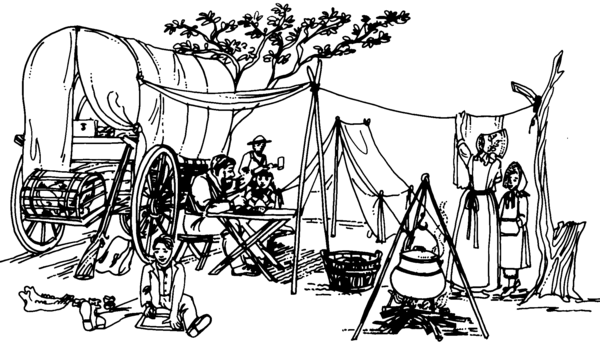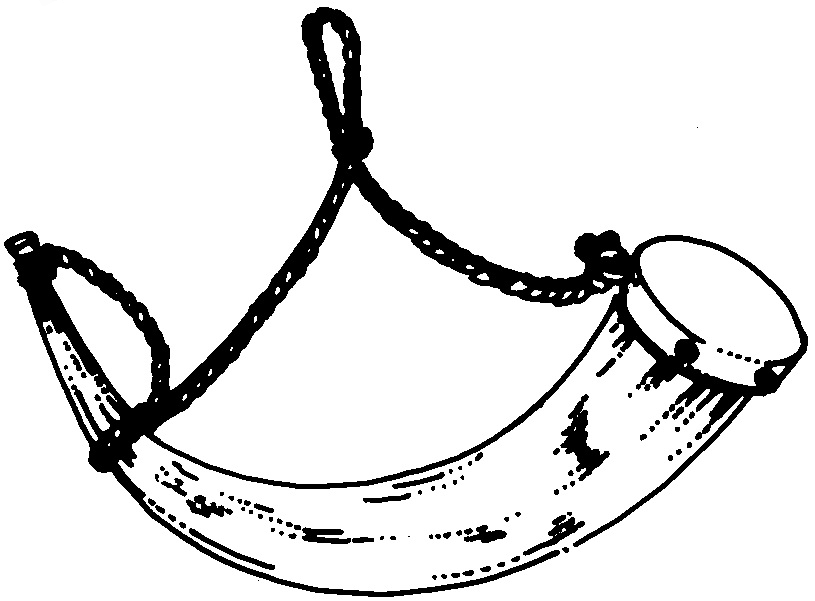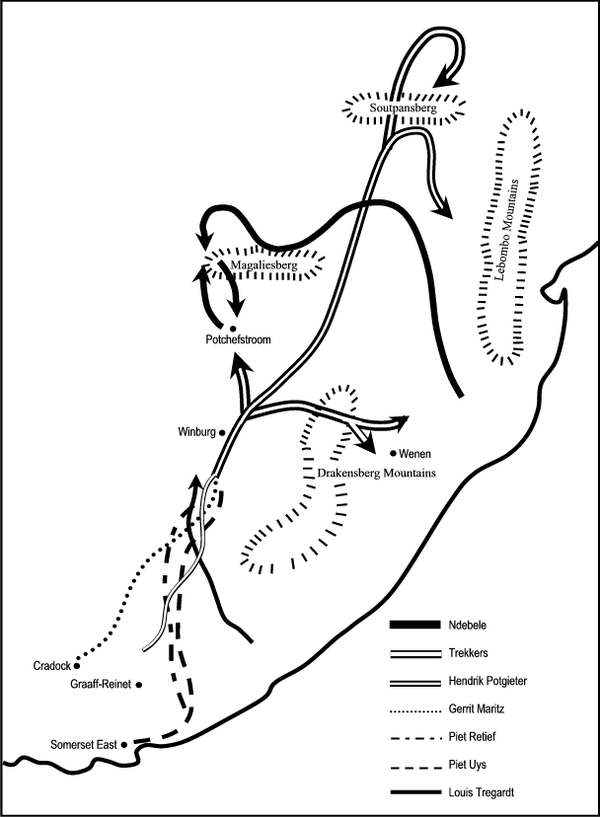| << Chapter < Page | Chapter >> Page > |
“Women had to prepare food and do the washing and sewing. Sick people were treated with herbs. The men loved hunting and the boys could ride well and could shoot and hunt from an early age. When an animal was shot, the skin was used for cutting thongs that were used as string, sjamboks and matting for homemade chairs. The hollowed-out horns were used to store gunpowder, and candles and soap were made from fat and the gannabos .”

d) Demonstrate games from the Great Trek to your friends.
or
Tell your friend more about life during the Great Trek.
a) Do the following assignments as a group.
Group 1:
Group 2


Group 3
Study these sketches and complete the following:
Group 4
You are a Voortrekker woman on trek:
Towards the end of 1835 the first trek parties left the Cape Colony with leaders such as Tregardt and Potgieter. The map below will be of great help during your study of the Great Trek.
 Trek groups and routes during the Great Trek Trek groups and routes during the Great Trek |
The Great Trek was an attempt by more than 15 000 white frontier farmers to get away from the British government. They left in their ox-wagons to settle and govern themselves elsewhere. The word “great” does not refer to the number of Trekkers (they were only 1/10 of the Cape Afrikaners), but to the far-reaching consequences thereof. It was also not a single trek, but was made up of different groups which left the Cape Colony between 1836 and 1838. They also took Khoina, ex-slaves and black helpers with them, especially as herdsmen.
| Assessment standards(ASe) |
| LEARNING OUTCOME 1: HISTORICAL ENQUIRY- The learner will be able to use enquiry skills to investigate the past and present |
| 1.1 Access the sources |
| 1.2 Use the sources |
| 1.3 Communicate information from sources (reporting)) |
| LEARNING OUTCOME 2: HISTORICAL KNOWLEDGE AND UNDERSTANDING – The learner will be able to demonstrate historical knowledge and understanding |
| 2.1 Understand chronology and time |
| 2.2 Supply reasons why an historical event took place (causes, effects) |
| 2.3 Differentiate between different periods (similarities, differences) |
| LEARNING OUTCOME 3: INTERPRETING HISTORY – The learner will be able to interpret aspects of history |
| 3.1 Be aware of more than one view of the past |
| 3.2 Distinguish between fact and opinion |
| 3.3 Reconstruct the past |
(b) There were also other (additional) reasons:
(c)
(1) beam
(2) chest (wakis)
(3) canvas
(4) potjiekos pot
(5) barrel with tar and fat (grease-can) (grease for wheels)
(6) axle
(d) Attached
Activity 2:
Group 3:

Notification Switch
Would you like to follow the 'History grade 7' conversation and receive update notifications?